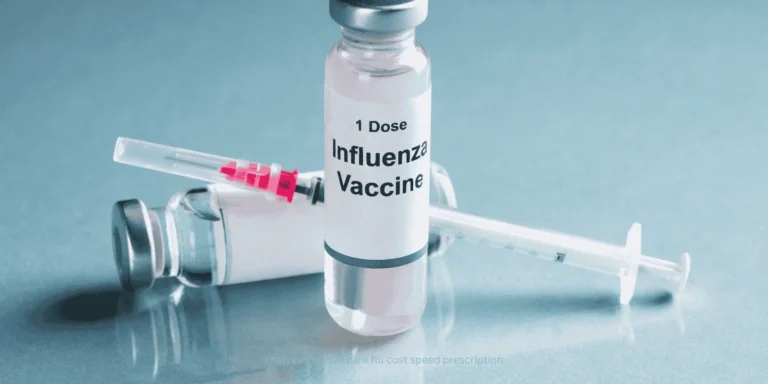“The doctor said my bronchitis is gone, but I’m still coughing constantly,” my patient complained during our follow-up. “Is something else wrong?”
Post-bronchitis cough frustrates patients more than any other aspect of this common illness. Understanding why coughs persist long after infection clears helps set realistic expectations and prevents unnecessary worry.
Why the Cough Hangs Around
Airway inflammation doesn’t resolve immediately when the infection clears. Damaged bronchial tissues need weeks to fully heal.
Hypersensitive airways react to minor irritants like cold air, talking, or deep breathing that normally wouldn’t trigger coughing.
Mucus production continues even after active infection ends as airways clear remaining debris and dead cells.
Damaged cilia — the tiny hair-like structures that sweep mucus out of airways — need time to regenerate and resume normal function.
The Typical Timeline
Weeks 1-2: Active infection with productive cough bringing up colored mucus.
Weeks 2-3: Infection resolves but cough persists, often becoming dry and irritating.
Weeks 3-6: Gradual cough improvement, though symptoms may still occur with triggers.
Weeks 6-8: Most people experience complete resolution, though some coughs persist even longer.
What Makes Some Coughs Last Longer
Smoking dramatically extends recovery time, with smokers often coughing for 2-3 months after bronchitis.
Asthma or chronic lung conditions create baseline airway hypersensitivity that prolongs post-infectious cough.
Environmental irritants like air pollution, dust, or chemical fumes delay airway healing.
Acid reflux can irritate airways from below, causing persistent cough that mimics lingering bronchitis.
Normal vs. Concerning Symptoms
Normal lingering cough is dry or brings up small amounts of clear/white mucus, gradually improving over weeks.
Concerning symptoms include worsening cough, return of colored sputum, new fever, or shortness of breath.
Progressive improvement is key — even slow progress indicates normal healing rather than complications.
When to Worry About Pneumonia
Worsening symptoms after initial improvement suggests possible pneumonia development.
High fever return beyond week one indicates potential bacterial superinfection.
Increased shortness of breath or chest pain with breathing may signal lung tissue involvement.
Colored sputum reappearance after it had cleared suggests new bacterial infection.
Managing the Persistent Cough
Cough suppressants at night help maintain sleep without interfering with daytime mucus clearance.
Honey soothes throat irritation and may reduce cough frequency naturally.
Humidified air keeps airways moist and reduces irritation that triggers coughing.
Avoid irritants like smoke, strong perfumes, and cold air that stimulate hypersensitive airways.
Stay hydrated to keep remaining secretions thin and easier to clear.
Why Antibiotics Won’t Help
Viral bronchitis causes most cases and doesn’t respond to antibiotics.
Post-infectious cough results from healing inflammation, not active infection requiring treatment.
Antibiotic side effects can actually prolong symptoms by disrupting normal bacterial balance.
Work and Activity Considerations
Return to work is usually appropriate once fever resolves, even if cough persists.
Exercise tolerance may remain limited for weeks as airways heal and conditioning rebuilds.
Gradual activity increase prevents overexertion that could worsen symptoms or delay recovery.
Sleep Disruption Management
Elevate head during sleep to reduce postnasal drip and minimize nighttime coughing.
Bedroom humidification maintains moisture levels that soothe irritated airways.
Bedtime cough suppressants allow rest without completely suppressing the productive daytime cough.
When to Return for Evaluation
No improvement after 3 weeks despite supportive care measures.
Progressive worsening at any point during recovery.
New symptoms like chest pain, wheezing, or blood in sputum.
Functional impairment that prevents normal activities or disrupts sleep despite management attempts.
Alternative Diagnoses to Consider
Whooping cough can cause prolonged cough lasting months, especially in adults with waning immunity.
Post-nasal drip from allergies or sinus problems may prolong cough beyond actual bronchitis recovery.
Medication side effects like ACE inhibitors used for blood pressure can cause chronic cough.
Setting Realistic Expectations
Six to eight weeks of some cough is normal and doesn’t indicate treatment failure.
Gradual improvement matters more than complete resolution by a specific date.
Individual variation means some people recover faster while others need extended time.
The persistent post-bronchitis cough, while annoying, usually represents normal healing rather than ongoing infection. Patience combined with symptom management gets most people through this frustrating recovery phase successfully.












